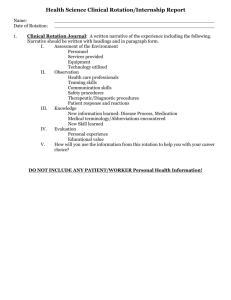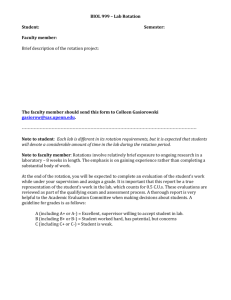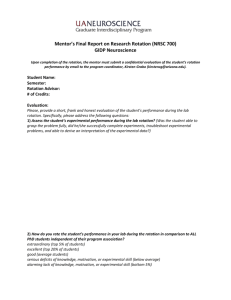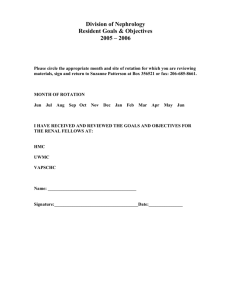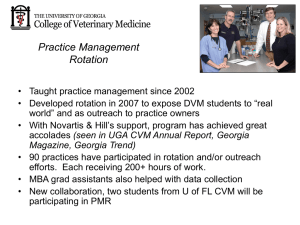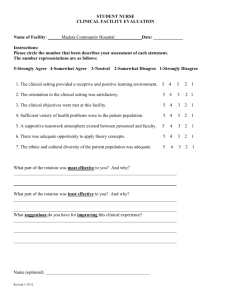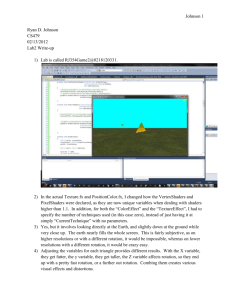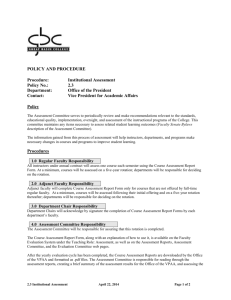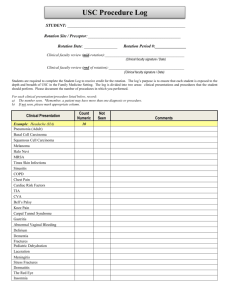Course Syllabus
advertisement
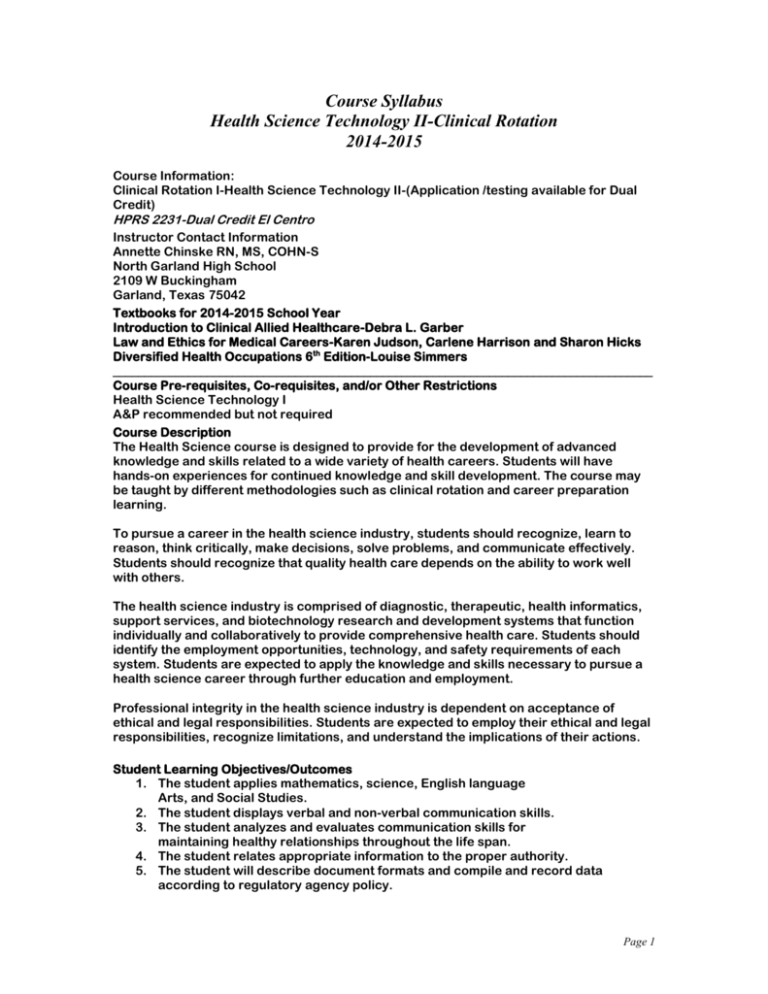
Course Syllabus Health Science Technology II-Clinical Rotation 2014-2015 Course Information: Clinical Rotation I-Health Science Technology II-(Application /testing available for Dual Credit) HPRS 2231-Dual Credit El Centro Instructor Contact Information Annette Chinske RN, MS, COHN-S North Garland High School 2109 W Buckingham Garland, Texas 75042 Textbooks for 2014-2015 School Year Introduction to Clinical Allied Healthcare-Debra L. Garber Law and Ethics for Medical Careers-Karen Judson, Carlene Harrison and Sharon Hicks Diversified Health Occupations 6th Edition-Louise Simmers ______________________________________________________________________________________ Course Pre-requisites, Co-requisites, and/or Other Restrictions Health Science Technology I A&P recommended but not required Course Description The Health Science course is designed to provide for the development of advanced knowledge and skills related to a wide variety of health careers. Students will have hands-on experiences for continued knowledge and skill development. The course may be taught by different methodologies such as clinical rotation and career preparation learning. To pursue a career in the health science industry, students should recognize, learn to reason, think critically, make decisions, solve problems, and communicate effectively. Students should recognize that quality health care depends on the ability to work well with others. The health science industry is comprised of diagnostic, therapeutic, health informatics, support services, and biotechnology research and development systems that function individually and collaboratively to provide comprehensive health care. Students should identify the employment opportunities, technology, and safety requirements of each system. Students are expected to apply the knowledge and skills necessary to pursue a health science career through further education and employment. Professional integrity in the health science industry is dependent on acceptance of ethical and legal responsibilities. Students are expected to employ their ethical and legal responsibilities, recognize limitations, and understand the implications of their actions. Student Learning Objectives/Outcomes 1. The student applies mathematics, science, English language Arts, and Social Studies. 2. The student displays verbal and non-verbal communication skills. 3. The student analyzes and evaluates communication skills for maintaining healthy relationships throughout the life span. 4. The student relates appropriate information to the proper authority. 5. The student will describe document formats and compile and record data according to regulatory agency policy. Page 1 6. The student describes academic requirements necessary for Employment in the health science industry. 7. The student identifies problems and participates in the decision-making process. 8. The student implements the knowledge and skills of a health science professional in the clinical setting. 9. The student exhibits the leadership skills necessary to function in a democratic society. 10. The student maintains a safe environment. 11. The student assesses wellness strategies for the prevention of disease. Textbooks: Introduction to Clinical Allied Healthcare-Debra L. Garber Law and Ethics for Medical Careers-Karen Judson, Carlene Harrison and Sharon Hicks Course Topics The course will cover the following topics: 1. Orientation to Class and Procedures 2. HOSA/Leadership/Teambuilding 3. Cultural Diversity 4. Infectious Diseases/Hepatitis/Tuberculosis 5. Scrubs/Badges/Professional Dress 6. Medical Terminology/Abbreviations/Communication 7. Introduction to Healthcare Facilities 8. The Acute Care Hospital 9. Hospitals Employees, Healthcare Careers and Medical Staff 10. Health Care Workers/Careers in Health Care 11. Clinical Rotation Orientation 12. Safety/Body Mechanics 13. Hospital Confidentiality 14. General Hospital Information 15. Infection Control 16. Fundamental Skills/Vital Signs 17. CPR 18. Medical Ethics and Legal Responsibilities 19. Hospital Confidentiality 20. Patient Bill of Rights/Living Will 21. Final Prep for the Hospital 22. Patient Care Equipment 23. Human Growth and Development 24. Coping with Illness/Grief & Loss/Death & Dying 25. Nutrition 26. Basic First Aid 27. Introduction to the Human Body a. Basic Structure b. Body Planes, Directions & Cavities c. Pathophysiology 28. Employability Skills/Resume Writing __________________________________________________________________________________ Assignments & Academic Calendar All assignments , calendars and hospital schedules, included Hospital Questions are due on the 1st day of the rotation Clinical Experience Packets are due on the Fridays following the end of a rotation Page 2 Grading Policy Your six weeks grade is based on the following: 40%-tests, rotation packets, projects and reports 30%-Clinical Experience Packet/Quizzes 15%-Hospital Evaluation and Hospital Daily Grade 15%-Classwork, current events and homework MST Project grade is 25% of 3rd and 6th six week grade of our MST students Policies and Procedures for Students We are pleased to have you in the Clinical Rotation program for the 2014-2015 school year. Each student was selected to be in this special program because of an interest in Health Care and a demonstration of responsibility in educational pursuits. Confidentiality and maturity are critical tools in the student’s success at the hospital. It is a very unique opportunity and documentation is a critical component. Your support in this area is very important. Please read the enclosed forms carefully. They need to be signed by the student and parent and returned by first week of rotation. IMPORTANT POINTS REGARDING CLINICAL ROTATION 1. The first 6 weeks is spent in the classroom At NGHS. After that time we will go to the hospital 2 days a week and have class on Friday. Bus transportation will be provided to and from the hospital. You may not drive your car. 2. Attendance-A hospital experience cannot be made up if absent. Please make every effort to be at Clinical unless you have a fever of 101 or higher or feel that you have a contagious disease. You must notify your instructor by 8:00 on the morning of rotation if you are not coming. (Please see attached attendance rules). Punctuality is also important. Students must be at the hospital on time. Transportation is the sole responsibility of the student. (Bus transportation will be provided for all clinical classes) 3. Hepatitis B-This is a very contagious liver disease that is spread by blood and body fluids. Please bring proof of at least 3 Hepatitis B immunizations by 1 st week of school. 4. PPD screening and Chicken Pox Vaccine or proof of illness Please bring proof of these by 1st week of school. 5. Clinical Rotation students will be required to purchase liability insurance. The cost will be $14.50 for a one year policy. The check should be made out to Bill Beatty and this will be due 1st week of school. 6. Clinical Rotation students will be required to show proof of or purchase health insurance by 1st week of school. 7. Required Supplies for Clinical Rotation Watch with second hand A floppy binder for hospital use 8. Scrubs (Black) are required. Scrubs cost approximately $25.00. A solid white T-shirt may be worn under scrubs if desired. A scrub jacket is optional but no other jackets are allowed. White or Black Leather Tennis Shoes with no colored stripes are required for the hospital. 9. Students are expected to join HOSA (Health Occupations Students of America.) HOSA activities help you to develop job skills, leadership abilities, and meet other HOSA students. All students will be required to participate in the fund raising projects. Dues are $40.00 and they are due by 1st week of school We are excited about having you in class and hope this will be the best memory of your school year. Please tell your parents to call if they have any questions or concerns. These descriptions and timelines are subject to change at the discretion of the Instructor. Page 3
